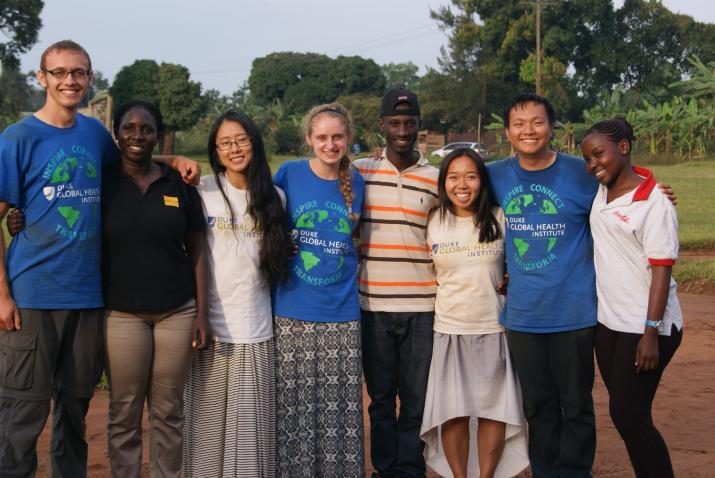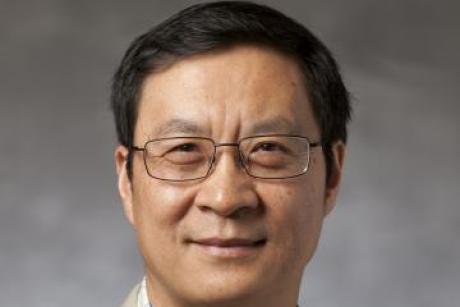
Posing with our three translators for a celebratory post-health fair photo after a long, but rewarding second day.
Published July 27, 2014, last updated on October 5, 2017 under Voices of DGHI
Samantha Truong ‘15
“What has a beginning must also have an end.”
One of the primary school headmasters we had worked with closely this summer bade us this farewell, his words replaying in my head for the rest of our last day in the community. They hit deeply, twisting a knot in my stomach, accompanying the bittersweet knowledge that this was goodbye (at least, for now). The time had come to brush the dust of our suitcases, peel our well-used planning calendar off the wall, and relocate the belongings that had exchanged so many hands over the past two months. Time for wrapping up project details and final de-briefing meetings. Time to thank our translators, village health teams, and district health officials for lending their time and imparting their wisdom. Two community health fairs, 485 surveys, 304 blood-draws, and 145 water tests later, the time had come to leave Uganda.
When it comes to global health fieldwork, people often talk of the novelty and culture shock of arrival, the excitement and frustration of implementing one’s projects, the challenges and surprises inherent to this process of progress. We often don’t focus on what it’s like coming home. For eight weeks, home to us meant beds draped with mosquito nets, bowls and bowls of pineapples, and windows lit by breathtaking sunrises. Home meant crowding the entire team into one tiny room, project planning and data-entering late into the night. Home meant Luganda lessons over dinner and impromptu cookie-baking for birthdays and milestones reached. Our fieldwork team—Ugandan translators and Duke students alike—had become a second family, this community center in Mityana our home away from home.
We had been welcomed warmly into this parish of fourteen villages by individuals from all levels of the community. Together, we shared laughter. We shared stories. We shared in triumphs and in failures. Our team experienced the power of simply listening, opening our minds to opinions different—or even contradictory—to our own. We learned that global health fieldwork is very much a two-way exchange: we came to share ideas and resources, but also learned compassion, resilience, and humility in return. Saying our goodbyes to people who had given us Ugandan clans and accepted us as “brothers” and “sisters”, “sons” and “daughters”—this in and of itself has been one of the most difficult aspects of this summer.
In the field, we can easily consume ourselves with the details of data collection or the stress of carrying out our projects successfully. However, the relationships we build are equally important—ones that can far outlast the results of our research or the 900 people served at our community health fairs. These are relationships we should hope to cultivate beyond our short time there, not only through future teams, but also our own efforts. Coming home to our loved ones, we know that this beautiful community will forever hold a special place in our hearts.

